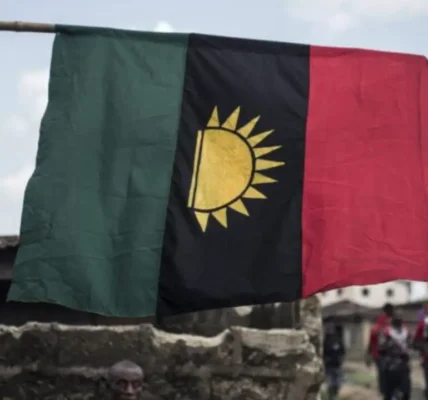2015 Election: Presidential, National Assembly results from Nigeria’s South South inflated – Report
FREEPRESS – The results of the 2015 Nigeria’s Presidential and National Assembly elections from the South-South region of the country were probably inflated by officials of Independent National Electoral Commission, a report released by a civil society coalition, Transition Monitoring Group, TMG, says.
TMG is Nigeria’s foremost election observation group.
The report titled “TMG Quick Count Report of the 2015 Presidential Election” was launched in Abuja on Friday.
TMG said it deployed approximately 4,000 citizen observers to carry out representative observation of polling units across the 774 Local Government Areas.
Although the report showed that estimates by TMG’s Quick Count correlated with official results finally released by INEC, the group however said the number of accredited voters was inflated during the collation exercise, suggesting a way of creating room for inflated results.
“In verifying the official results of the 2015 presidential election, the Quick Count estimates strongly suggested that turnout was inflated during the collation process in the South-South geopolitical zone,” the report said.
“Quick Count estimates for the South-South geopolitical zone was 40.6% (+/-4.5%) while the official result the zone was as released at 55.9%. Thus official turnout was likely inflated during the collation exercise by at least 10.8%. The official results of the other five geopolitical zones consistent with TMG’s Quick Count estimates.”
Former President Goodluck Jonathan of Peoples Democratic Party recorded sweeping victory in the South-South, his base, while President Muhammadu Buhari who was the candidate of All Progressives Congress swept poll across in the North West, his zone.
But TMG said its estimates in the North West and the other zones, apart from the South-South, ran consistent with INEC’s official release.
TMG said its observers reported on the poll, accreditation, voting, counting processes and collected voting results at the polling units.
“At the heart of the Quick Count is a sophisticated database and text messaging communication systems by highly trained data managers and data clerks to ensure that complete and accurate data is received from all observers and analysed … to form highly accurate estimates of the overall poll conduct of the election, including party vote counts and voter turnout,” TMG’s Program Manager, Lazarus Apir, explained.
The report said the deployment party agents by the APC to the polling units in South-South and South-East was and 85% and 80% respectively. But in the two regions, PDP deployed agents to 93% of the polling units.
The report showed that the APC perhaps deliberately de-emphasize focus on the South-South and South-East, two strongholds of PDP, concentrating on other zones where it deployed more agents to polling units than PDP did.
Quick Count reported the presence of security personnel in 88% of the polling units. But this was poor when compared with 94% security presence across all polling units during the 2011 elections, TMG said.
By 11:30am of March 28, 2015, only 68% of the polling units had opened for accreditation exercise and in 96% of the polling units no voter was accredited without permanent voter’s card.
What counted as upside of Nigeria’s 2015 election widely acclaimed as example for Africa, according to the Quick Count report, was that observers reported there were no incidents of harassment against voters, poll officials, party agents and observers during voting in 96% of the polling units.
At 95% and 91%, respectively, of the polling units, APC and PDP agents signed the result sheets (INEC Form EC8A).
In 91% of the polling units, results were publicly pasted. By regional breakdown, results were publicly pasted in the North West, 93%; North East, 96%; North Central, 92%; South West, 88%; South East, 90%; and South South, 89%.
To improve Nigeria’s electoral process, TMG recommended that political parties and candidates restrict their campaigns to Nigeria’s development issues.
(PREMIUM TIMES)













